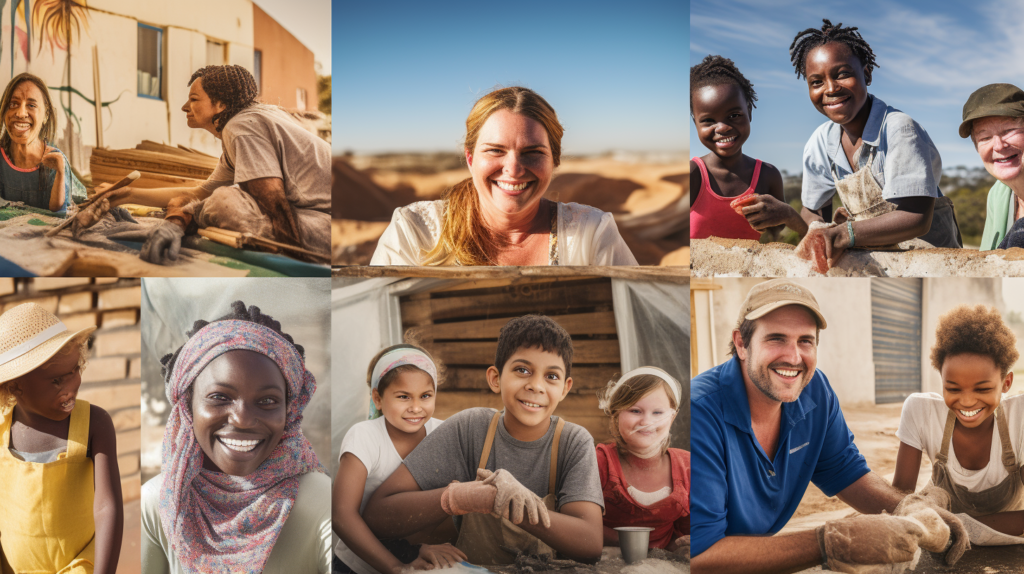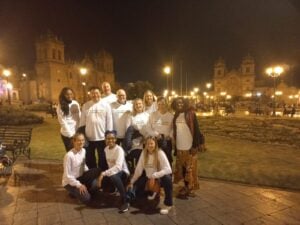Are you looking for a way to make a meaningful impact on the world? Do you want to immerse yourself in a new culture and gain a deeper understanding of global issues? If so, volunteering abroad may be the perfect opportunity for you. Volunteering not only allows you to give back to communities in need but also provides you with a unique and transformative travel experience.
So, what exactly is meaningful travel, and why is it so important? Meaningful travel goes beyond simply visiting a new place or ticking off tourist attractions from a list. It is about immersing yourself in a culture, connecting with local communities, and making a positive difference through your actions. It’s an opportunity to step out of your comfort zone, challenge your perspectives, and contribute to sustainable projects that have a lasting impact.
Whether you are a young student looking to gain new skills, a professional seeking a break from your routine, or a retiree wanting to give back to the world, there are volunteer programs tailored for all ages and interests. These programs offer a range of opportunities, from working with children in orphanages to conservation projects in wildlife sanctuaries.
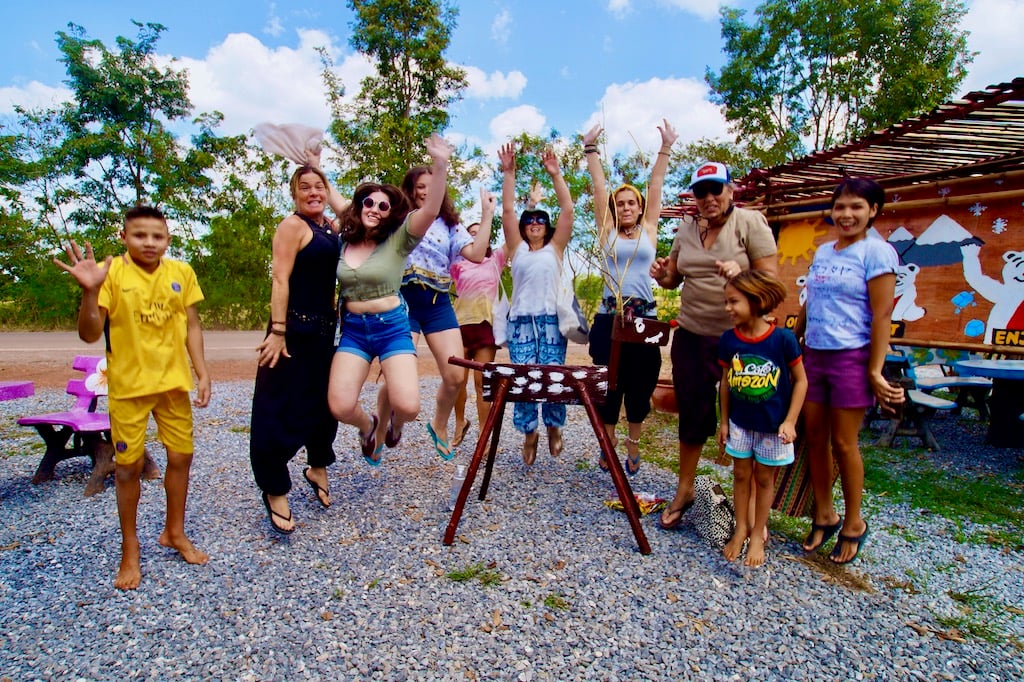
In this article, we will explore the essential aspects of meaningful travel and provide you with valuable insights on how to choose the right volunteer program, prepare for your journey, understand local culture, engage in impactful work, build connections, and ensure your safety and well-being throughout your volunteering experience. We will also discuss the personal growth and reflections that come with volunteering and how you can continue to support the cause even after returning home.
So, if you’re ready to embark on a life-changing adventure and make a difference in the world, let’s dive in and discover the world of meaningful travel for global volunteers of all ages.
Choosing the Right Volunteer Program
Choosing the right volunteer program is crucial to ensuring a meaningful and impactful experience. With so many organizations and opportunities out there, it can be overwhelming to make a decision. However, doing thorough research and considering certain factors can help you find the perfect fit. Here are some tips to help you choose the right volunteer program:
Researching Volunteer Organizations
- Look for reputable and well-established volunteer organizations with a proven track record. Read reviews and testimonials from past volunteers to get a sense of their experiences.
- Consider the organization’s mission and values. Make sure they align with your own beliefs and goals.
- Check if the organization has a clear and transparent volunteer recruitment and selection process. This indicates their commitment to ensuring a suitable match between volunteers and projects.
Understanding the Program’s Objectives
- Take the time to understand the objectives and goals of the volunteer program. What is the specific impact they aim to achieve? Is it aligned with your own interests and passions?
- Look for programs that prioritize sustainability and long-term impact. It’s important to choose a program that focuses on empowering local communities and fostering self-sufficiency.
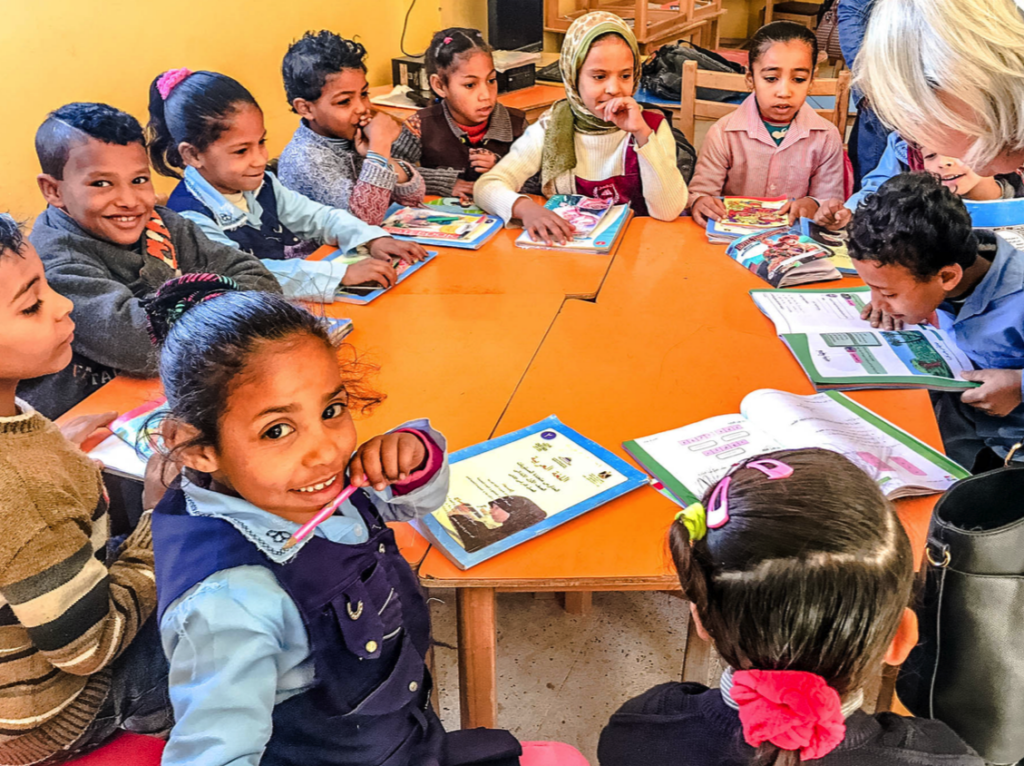
Considering Safety and Support
- Safety should be a top priority when choosing a volunteer program. Look for organizations that have safety protocols in place and provide necessary support and guidance.
- Consider the level of support provided by the organization. Will they offer pre-departure training, on-site orientation, and ongoing support throughout your volunteer journey?
- Find out if the organization has partnerships with local organizations or communities. This can ensure a more integrated and impactful volunteer experience.
Remember, choosing the right volunteer program is a personal decision. Take the time to reflect on your own interests, skills, and what you hope to gain from the experience. By doing your due diligence and considering these factors, you can find a program that aligns with your values and allows you to make a meaningful contribution.
Preparation and Planning
When embarking on a meaningful volunteer trip, preparation and planning are crucial. Taking the time to properly prepare will ensure a smooth and rewarding experience. Here are some important factors to consider:
Setting Clear Goals and Objectives
Before you dive into planning your volunteer trip, it’s essential to identify your goals and objectives. Ask yourself the following questions:
- What do you hope to achieve through volunteering?
- What skills or knowledge do you want to gain?
- Which causes or issues are important to you?
Understanding your motivations and goals will help you choose the right volunteer program and make the most of your experience.
Arranging Travel Logistics
Once you have a clear idea of your goals, it’s time to start making arrangements for your volunteer trip:
- Choose a destination: Research different countries and regions to find the one that aligns with your interests and goals.
- Determine the duration: Decide how long you want to volunteer for—whether it’s a few weeks, a month, or even longer.
- Find a reputable organization: Look for volunteer organizations that have a good track record and positive reviews from previous volunteers.
- Plan your budget: Consider all the expenses involved, including airfare, accommodations, meals, transportation, and any program fees.
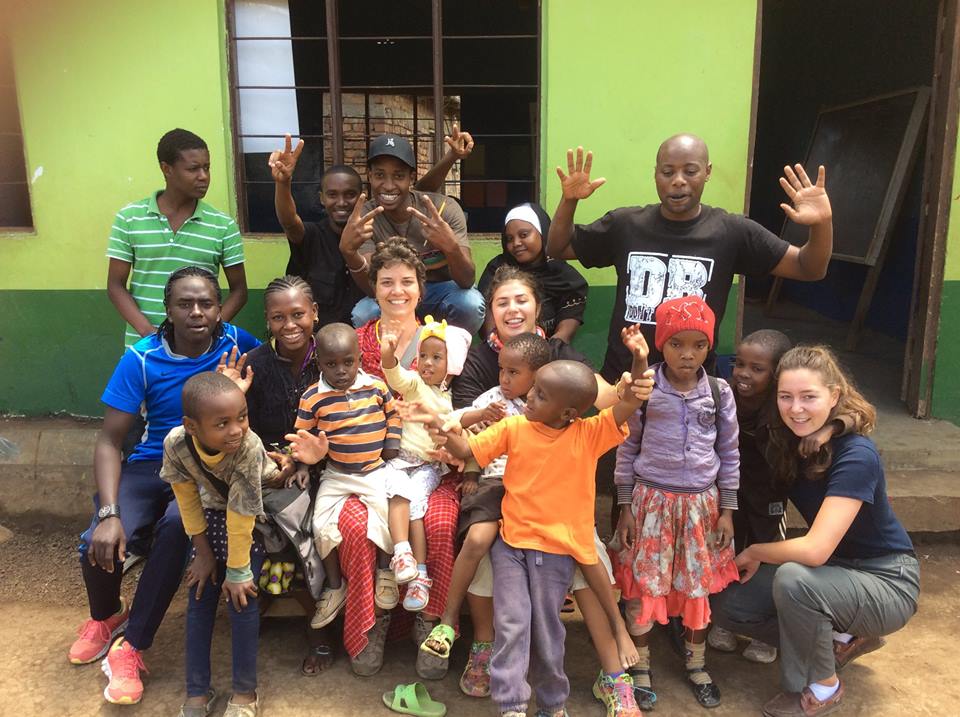
Obtaining Necessary Visas and Documentation
Before you travel, be sure to check the visa requirements for your chosen destination. Depending on your nationality and the length of your stay, you may need to obtain a tourist visa, work visa, or volunteer visa. It’s essential to research the specific requirements and allow plenty of time for the application process.
In addition to visas, ensure you have all the necessary documentation in order. This may include:
- Passport: Make sure your passport is valid for at least six months beyond your intended stay.
- Vaccination records: Some countries require specific vaccinations, so check the requirements and get the necessary shots well in advance.
- Travel insurance: It’s wise to have comprehensive travel insurance that covers any illnesses, injuries, or emergencies that may arise during your trip.
- Contact information: Carry a list of emergency contacts, including the local embassy or consulate.
Taking care of these logistical aspects before your trip will give you peace of mind and allow you to focus on the volunteer work ahead.
Remember, preparation and planning are key to a successful volunteer trip. By setting clear goals, arranging logistics, and obtaining the necessary visas and documentation, you’ll be well-equipped to embark on a meaningful and rewarding experience.
Understanding Local Culture and Customs
When embarking on a volunteer program in a foreign country, it is crucial to have a deep understanding of the local culture and customs. This knowledge not only helps you integrate into the community more effectively but also shows respect for the local way of life. Here are some important considerations to keep in mind:
Learning the Language
One of the best ways to immerse yourself in a new culture is by learning the local language. While it may not be possible to become fluent in a short period, a few key phrases and greetings can go a long way in building connections and fostering positive relationships. Consider enrolling in a language class or using language-learning apps to familiarize yourself with common expressions and basic conversational skills.
Respecting Traditions and Norms
Every culture has its own unique traditions and customs. It is essential to respect and adhere to these norms while volunteering abroad. Take the time to research and understand local etiquette, dress codes, and social behaviors. For example, in some cultures, it may be considered disrespectful to show the soles of your feet or to wear revealing clothing. By respecting these customs, you demonstrate your appreciation for the local culture and avoid inadvertently causing offense.
Adapting to Cultural Sensitivities
As a volunteer, you have the responsibility to be culturally sensitive and avoid imposing your own beliefs and values on the community you are working with. Be open-minded and willing to adapt your behavior and expectations to align with the local cultural context. This means being mindful of differences in communication styles, personal space, and social hierarchies. Embracing cultural diversity and being sensitive to the needs and perspectives of others will help create a harmonious environment for everyone involved.
Remember, understanding and respecting the local culture and customs is not only a sign of appreciation but also an opportunity to learn and grow personally. It allows for meaningful interactions and helps foster a sense of community. By immersing yourself in the local culture, you can truly make a positive impact during your volunteer experience.
“The more you understand and appreciate the local culture, the more you can connect with the people you are serving.” – Unknown
Participating in Meaningful Volunteer Work
Volunteering abroad can be a truly rewarding experience that allows you to make a positive impact in communities around the world. When it comes to participating in meaningful volunteer work, here are some key points to consider:
Identifying Volunteer Opportunities
Before embarking on a volunteer program, it’s important to identify the type of work you’re interested in and the causes you’re passionate about. Research different organizations and projects to find the one that aligns with your values and goals. Consider the following:
- Look for volunteer opportunities that match your skills and interests. Whether you’re passionate about education, environmental conservation, healthcare, or community development, there are countless projects available.
- Consider the duration of the program. Some programs may require a short-term commitment, while others may offer long-term placements. Choose a duration that suits your availability and expectations.
- Assess the impact of the work. It’s important to choose projects that have a sustainable and positive impact on the local community. Look for programs that empower local communities and prioritize their needs.
Contributing to Sustainable Projects
When participating in volunteer work, it’s crucial to focus on projects that contribute to sustainable and long-term development. Here’s how you can ensure your work has a lasting impact:
- Collaborate with local organizations and community members. By working together and involving local stakeholders, you can ensure that projects are culturally sensitive, community-driven, and sustainable.
- Emphasize capacity building and skill transfer. Instead of focusing solely on providing immediate assistance, choose projects that empower local communities by fostering self-reliance and transferring skills that they can utilize even after you leave.
- Support projects that have a clear plan for continuity. Look for initiatives that have a long-term strategy in place and aim to create sustainable solutions to ongoing issues.
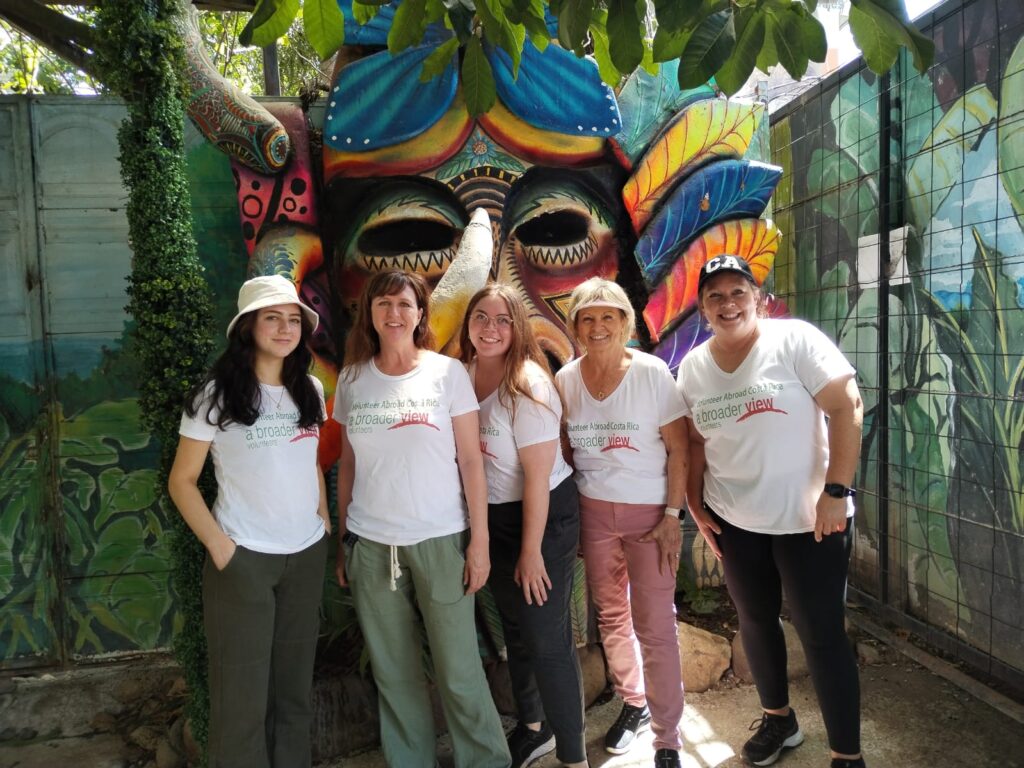
Collaborating with Local Organizations
To make the most of your volunteer experience, it’s important to actively collaborate with local organizations and build strong relationships with the community. Here’s how you can do that:
- Communicate and listen. Take the time to understand the needs and aspirations of the local community. Engage in open and respectful communication, and actively listen to their perspectives and ideas.
- Be flexible and adaptable. Recognize that different cultures may have different ways of approaching work and problem-solving. Be open to new approaches and be willing to adapt your methods to best meet the needs of the community.
- Learn from the locals. The best way to understand a community is by learning from the people who live there. Embrace the opportunity to learn about their culture, traditions, and way of life. This will not only enrich your experience but also help you build stronger connections.
Remember, the purpose of volunteering is to contribute to something greater than yourself while respecting the needs and values of the local community. By participating in meaningful volunteer work, you can make a real difference and create positive change in the world.
Building Connections and Relationships
One of the most rewarding aspects of volunteering abroad is the opportunity to build connections and relationships with local communities. These connections not only enrich your travel experience but also have a lasting impact on the communities you serve. Here’s how you can foster meaningful relationships while volunteering:
Engaging with Local Communities
- Be open-minded and approachable: Show genuine interest in the lives and cultures of the people you meet. Smile, greet them warmly, and be willing to engage in conversations.
- Participate in community activities: Take part in local events, festivals, and celebrations. This allows you to immerse yourself in the community and forge connections with the locals.
- Respect local customs: Learn about the cultural practices and traditions of the community you are volunteering in. Respect and adhere to their customs to show your appreciation for their culture.
- Listen and learn: Take the time to listen to the stories and experiences of the locals. This not only shows respect but also helps you understand their perspectives and challenges.
- Collaborate and support local initiatives: Offer your ideas and expertise to local organizations and initiatives. By working together, you can contribute to the development and empowerment of the community.
Benefiting from Cross-Cultural Exchange
- Embrace cultural differences: Don’t be afraid to step out of your comfort zone and embrace new experiences. Embracing cultural differences fosters mutual understanding and appreciation.
- Share your own culture: Engage in cultural exchange by sharing aspects of your own culture with the locals. This can be through food, music, or other traditions that showcase your own heritage.
- Learn the local language: While it may not be possible to become fluent, learning a few key phrases can go a long way in establishing connections and bridging communication gaps.
- Volunteer with locals: Look for opportunities to volunteer alongside locals. This allows you to work together towards a common goal, strengthening the bond between you and the community.
Fostering Long-Term Connections
- Stay in touch: After your volunteering experience, make an effort to stay connected with the people you met. Social media platforms and email can help you maintain relationships across geographic boundaries.
- Visit again: If possible, return to the community you volunteered in. This shows your commitment and allows you to deepen your relationships with the locals.
- Support local businesses: Even from a distance, you can continue to support local businesses and organizations by purchasing their products or donating to their causes.
- Advocate for the community: Share your experiences and advocate for the issues and challenges faced by the community. This can be through social media, public speaking, or writing articles to raise awareness.
Building connections and relationships while volunteering abroad is a two-way street. It requires genuine interest, respect, and a willingness to learn and contribute. These connections not only enrich your own experience but also create a positive and lasting impact on the communities you serve. So, open your heart and mind, and get ready to form connections that will last a lifetime!
Personal Growth and Development
Embarking on a volunteer program abroad not only allows you to make a positive impact on the lives of others but also provides countless opportunities for personal growth and development. Engaging in meaningful volunteer work can be a transformative experience that helps you gain new perspectives, develop important life skills, and deepen your understanding of the world. Here are some key ways in which volunteering can contribute to your personal growth:
Developing Empathy and Compassion
Volunteering in a different cultural setting exposes you to diverse experiences and challenges that can broaden your perspective and help you develop empathy and compassion. As you interact with individuals from different backgrounds and communities, you’ll gain a deeper understanding of their struggles and triumphs. This heightened sense of empathy can strengthen your connection to humanity and enable you to become a more compassionate and understanding individual.

Gaining New Perspectives
By immersing yourself in a different culture, you’ll gain valuable insights and a fresh perspective on various aspects of life. You’ll learn about different ways of thinking, problem-solving, and living. This exposure to alternative lifestyles and belief systems can challenge your own assumptions and broaden your horizons. This newfound perspective can inspire you to approach life with a more open mind and a willingness to embrace diversity.
Acquiring Transferable Skills
Volunteering offers numerous opportunities to acquire and develop essential life skills that can benefit you in various personal and professional contexts. Some of the transferable skills you can gain through volunteering include:
- Communication: Interacting with individuals from different cultures enhances your communication skills, both verbal and non-verbal. You will learn how to navigate language barriers and adapt your communication style to effectively interact with people who have different backgrounds and experiences.
- Leadership: Volunteering often involves working in teams or leading projects. It provides a platform to develop and enhance your leadership skills. Taking on responsibilities, coordinating with other volunteers, and finding solutions to challenges are all valuable experiences that can boost your leadership abilities.
- Problem-solving: Volunteering frequently involves overcoming obstacles and finding creative solutions to address community needs. These problem-solving experiences can sharpen your analytical skills, resourcefulness, and ability to adapt to new situations.
- Flexibility and Adaptability: Volunteering in unfamiliar environments teaches you to be flexible and adaptable. You’ll learn to navigate unexpected circumstances and embrace change with a positive attitude. This adaptability can be invaluable in both personal and professional settings.
“Volunteering abroad has pushed me out of my comfort zone and taught me valuable life skills. It has made me more adaptable, resilient, and resourceful.” – Sarah, Volunteer in Rwanda
Volunteering abroad offers unique opportunities for personal growth and development. By embracing these opportunities, you can become a more compassionate, open-minded, and skilled individual. Your experiences as a volunteer will undoubtedly influence how you navigate future challenges, interact with others, and view the world. So, step out of your comfort zone and embark on a volunteer program that not only creates a positive impact but also transforms you into a better version of yourself.
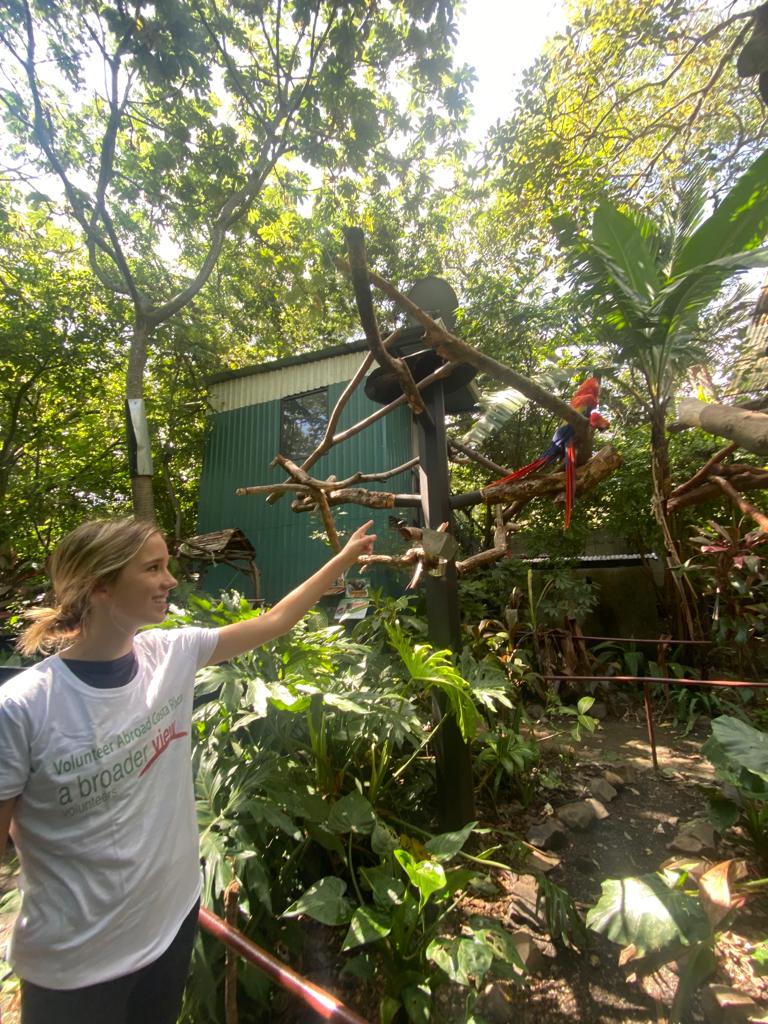
Safety and Well-being
When volunteering abroad, ensuring your safety and well-being should be a top priority. As you embark on your meaningful travel experience, it’s important to take precautions and be prepared for any potential risks or challenges that may arise. Here are some tips to help you stay safe and healthy while volunteering:
Health and Hygiene Tips:
- Prioritize personal hygiene: Wash your hands frequently with soap and clean water, especially before eating or preparing food, and after using the restroom.
- Stay hydrated: Drink plenty of clean water to prevent dehydration, especially in hot and humid climates.
- Protect yourself from insect bites: Use insect repellent, wear long sleeves and pants, and sleep under mosquito nets to prevent mosquito-borne diseases.
- Vaccinate: Visit a travel health clinic before your trip to ensure you are up to date on necessary vaccinations for the country you’ll be volunteering in.
- Pack a first aid kit: Include essential items such as band-aids, antiseptic wipes, pain relief medication, and any prescription medications you may need.
Emergency Preparedness:
- Research emergency contacts: Familiarize yourself with the local emergency contact numbers and hospital locations.
- Share your itinerary: Keep a trusted friend or family member informed about your travel plans and provide them with copies of important documents such as your passport and travel insurance details.
- Stay connected: Carry a mobile phone with a local SIM card and ensure you have access to a reliable communication method in case of emergencies.
- Know the local laws and customs: Familiarize yourself with the local laws and cultural norms to avoid any unintentional offenses that could jeopardize your safety.
Addressing Volunteer Burnout:
While volunteering can be a rewarding experience, it’s essential to prioritize your well-being and avoid burnout. Here are some strategies to maintain a healthy balance:
- Set boundaries: Understand your limits and communicate them with your project coordinators and fellow volunteers. It’s okay to say no or ask for assistance when needed.
- Take breaks: Dedicate time for relaxation and self-care activities. Whether it’s reading a book, going for a walk, or practicing mindfulness, make sure to prioritize your mental and physical well-being.
- Seek support: Reach out to the local project staff or fellow volunteers if you’re feeling overwhelmed. They can provide guidance and support during challenging times.
- Reflect and process: Take time to reflect on your experiences and emotions. Journaling or participating in group discussions can help you process your thoughts and feelings.
Remember, safety is a shared responsibility between you and the volunteer organization you are working with. Before choosing a volunteer program, ensure that the organization has safety protocols in place and provides adequate support to volunteers. It’s also important to have travel insurance that covers medical emergencies and evacuation if needed.
By taking the necessary precautions, being prepared for emergencies, and prioritizing your well-being, you can have a safe and fulfilling volunteer experience. Volunteering should be a positive and impactful journey, and your safety is paramount to make it a memorable and successful one.
Reflection and Continued Engagement
As your meaningful travel experience comes to an end, it’s important to take the time to reflect upon your volunteer work and think about how you can continue to make a positive impact even after you return home. Reflection and continued engagement are crucial in order to fully integrate the lessons and experiences from your volunteer program into your everyday life. Here are some tips for reflection and finding ways to stay engaged:
- Processing the Experience: Take some time to reflect on your journey as a global volunteer. What were the highlights? What challenges did you face? How did you grow as an individual? Write down your thoughts and feelings in a journal or blog or discuss them with friends and family. Reflecting on your experience can help solidify the lessons learned and allow you to better understand the impact you made.
- Sharing Stories and Inspiring Others: Share your volunteer experience with others. Whether it’s through social media, writing articles, or presenting at local events, sharing your stories can inspire others to get involved in meaningful travel. Your experiences may encourage others to take action and make a difference in the world. Additionally, hearing about your journey can help raise awareness about the issues you encountered during your volunteer work.
- Continuing to Support the Cause: While your volunteer program may have come to an end, your support for the cause doesn’t have to. Find ways to stay connected and continue supporting the community or organization you worked with. This can include donating money or resources, volunteering locally, or even starting your own initiative to address the issues you witnessed during your volunteer work. By staying engaged, you can maintain a lasting impact on the community you served.
“Remember, reflection is not just looking back at what you’ve done, but also a way to gain new insights and continue your personal growth.”
- Connecting with Fellow Volunteers: Reach out to your fellow volunteers and stay connected. Share your experiences and keep in touch with those who shared this unique journey with you. They can provide support, inspiration, and continued learning opportunities. Engaging with a community of like-minded individuals can nurture your passion for volunteer work and help you stay committed to making a difference.
- Seeking Further Learning Opportunities: Consider taking part in workshops, seminars, or webinars related to the cause you supported during your volunteer program. This will allow you to deepen your knowledge, gain new perspectives, and continue your personal growth journey. Look for organizations or online platforms that offer educational resources and opportunities for continued engagement.
- Encouraging Others to Volunteer: One of the most impactful ways to continue your engagement is to inspire others to become volunteers. Share your experiences and encourage friends, family, and colleagues to consider volunteering in their own communities or abroad. By spreading the word about the benefits and rewards of meaningful travel, you can help create a ripple effect of positive change.
Remember, your meaningful travel experience doesn’t have to end when your volunteer program does. By reflecting on your journey, sharing your stories, and staying engaged in some capacity, you can continue to make a difference in the world long after you’ve returned home. Keep the fire for positive change ignited within you and be a catalyst for a better future.
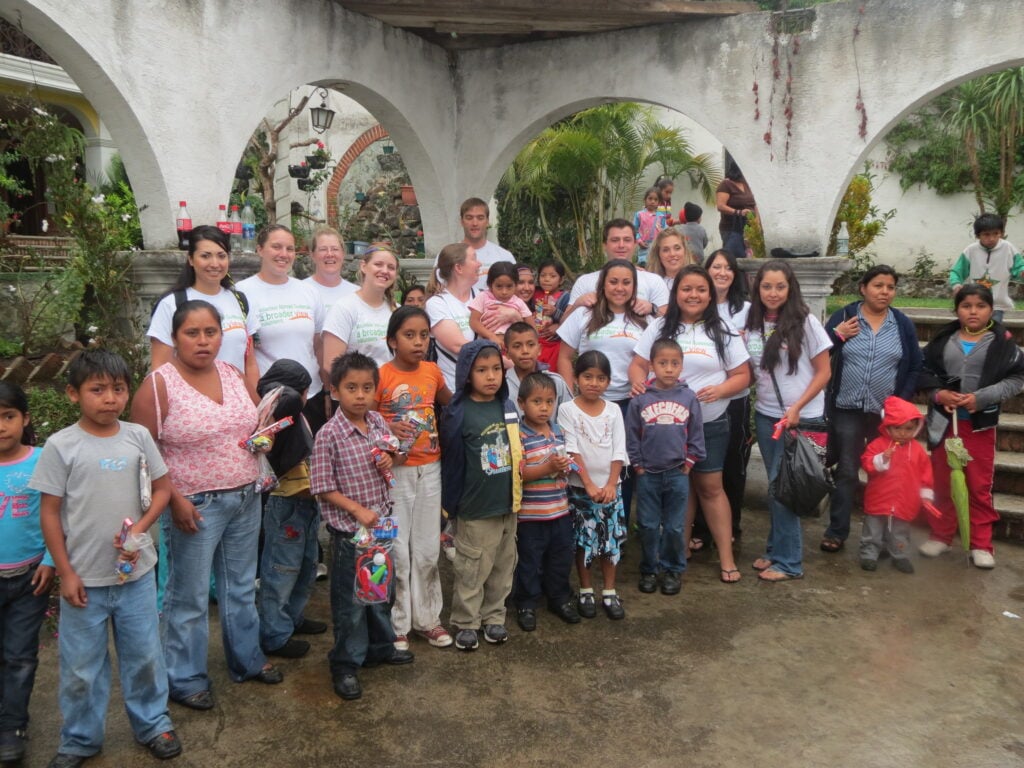
Conclusion
In conclusion, participating in a volunteer program can be a truly transformative experience. It offers the opportunity to make a positive impact in the world, while also gaining personal growth and development. By choosing the right program, preparing adequately, understanding local culture, engaging in meaningful work, building connections, prioritizing safety and well-being, and reflecting on the experience, volunteers can truly make a difference.
While embarking on this journey, it’s important to remember that the impact of volunteering goes far beyond the initial trip. By sharing stories and inspiring others, volunteers can continue to raise awareness and support for the cause they care about. Additionally, staying engaged with the organization and local community can help ensure long-term sustainable development.
A Broader View Volunteers is dedicated to providing meaningful and life-changing experiences for volunteers. With projects in various countries and a strong emphasis on cultural exchange and community development, they are a trusted organization for those looking to make a difference. If you’re interested in joining a volunteer program or learning more about A Broader View Volunteers, visit their website at www.abroaderview.org.
Remember, choosing to volunteer is not just about helping others; it’s also about challenging yourself, expanding your horizons, and creating lifelong memories. So, take the leap, embark on a meaningful journey, and make a positive impact on the world. The opportunities are endless, and the rewards are immeasurable.
Frequently Asked Questions
- What kind of meaningful travel experiences can global volunteers have?
Global volunteers can have various meaningful travel experiences, such as teaching English to underprivileged children, working on sustainable community development projects, assisting in wildlife conservation efforts, providing healthcare services in rural areas, and participating in cultural exchange programs.
- Are there age restrictions for becoming a global volunteer?
No, there are typically no age restrictions for becoming a global volunteer. Opportunities are available for volunteers of all ages, from young adults to retirees, as long as they meet the specific requirements of each volunteer program.
- What are the benefits of volunteering abroad?
Volunteering abroad offers numerous benefits, including cultural immersion, personal growth, development of new skills, enhancement of intercultural communication, building global connections, and making a positive impact on communities in need.
- How can I find meaningful volunteer opportunities abroad?
You can find meaningful volunteer opportunities abroad by researching reputable volunteer organizations, exploring their program offerings, reading reviews and testimonials, checking their accreditation, and contacting them directly for more information.
- Do I need any specific qualifications or skills to become a global volunteer?
The qualifications and skills required to become a global volunteer vary depending on the specific volunteer program. While some programs may require certain qualifications or expertise, many programs welcome volunteers with a passion for making a difference and offer training on-site.
-
Safe Solo Volunteering Abroad | Empowerment FemalesThrough Service with ABV

Embrace the adventure of a lifetime with ABV’s supported solo volunteering programs. Create lasting friendships, make a real difference, and explore the world safely under a supportive umbrella. Recommend Peru, Ecuador, Colombia, and more. Table of Contents Introduction to ABV and Solo Volunteering Traveling solo can be a thrilling yet daunting endeavor. A Broad View…
-
Empowerment Through Sustainable programs: Volunteer Opportunities in Peru Cusco
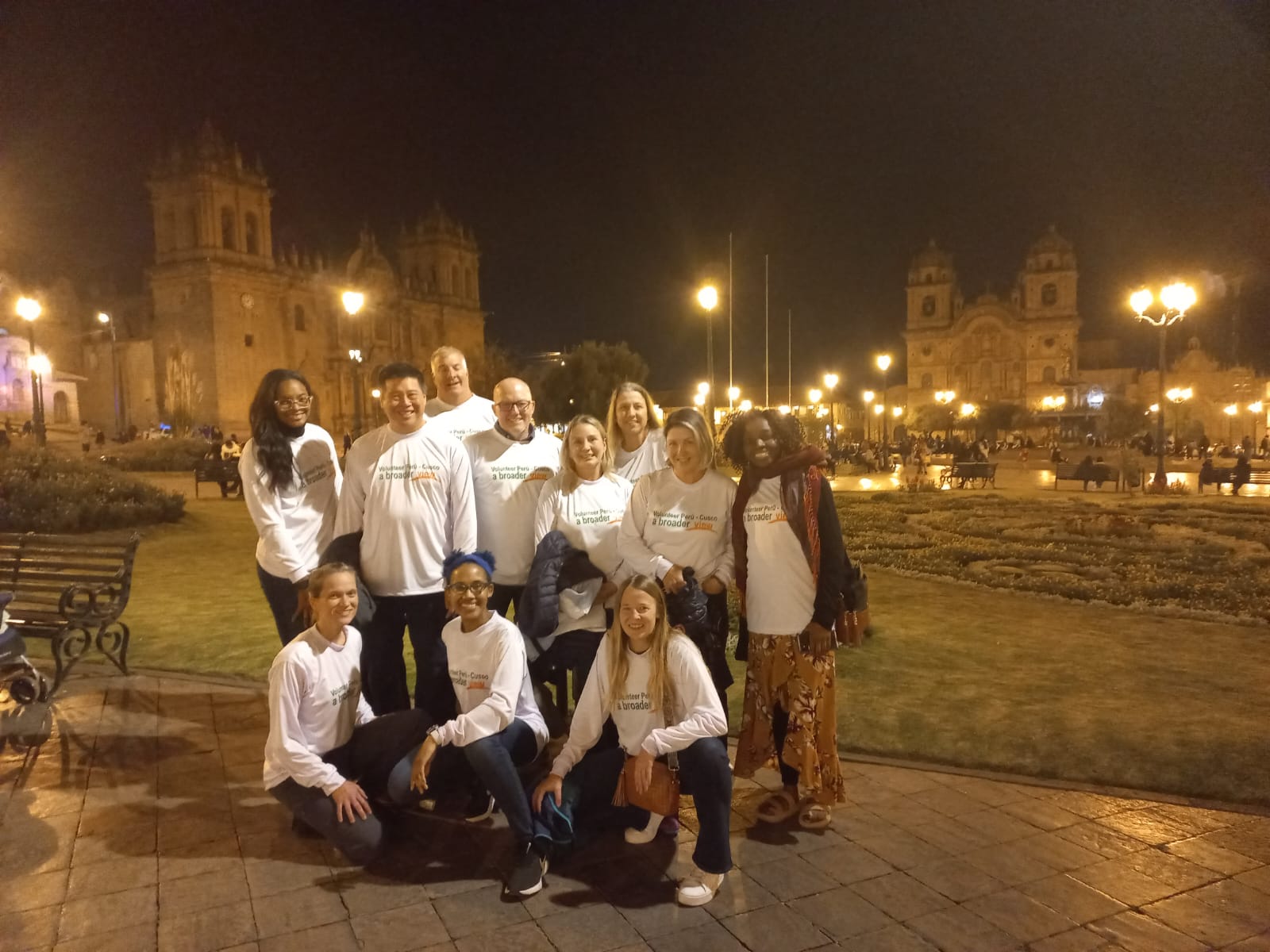
Discover empowering volunteer opportunities in Peru Cusco with www.abroaderview.org. Support sustainable programs and make a positive impact while gaining valuable experiences.
-
Midwives & Obstetricians: Empower Mothers & Babies Abroad

Discover how midwives and obstetricians from abroad can empower mothers and babies through the programs offered by www.abroaderview.org. Make a difference today.

